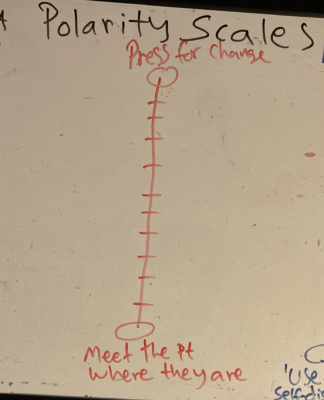Anger. That burning rage that is impossible to ignore. It’s not always a bad thing. It’s a natural reaction to a perceived threat or injustice. It is a strong, intense, and uncomfortable feeling meant to wake up your system and alert you that something is wrong. It can provide you with the courage and strength to do what needs to be done. This is not the anger that this article is addressing. This article is talking about unbridled anger.
Anger can overcome you in countless ways. You may feel misunderstood, unheard, taken advantage of, insulted. Something is happening that causes you to feel frustrated, vulnerable, and powerless. The more threatened you feel, the angrier you become until finally you lose control, and explode the aftermath of which can leave you with feelings of remorse, shame, guilt, and worse.
Sometimes the anger seems to arise out of nowhere. Your head is spinning, you can’t think straight, and your heart is beating hard with outrage. If you don’t reign it in, you could do irreparable damage to your relationship, you may lose your job, or you may cause serious harm to yourself or others. You are told that you need to control your anger. There are plenty of suggestions on how to do that like taking a deep breath, counting to 10, going for a walk or run, or find some other distraction. But, here is the rub. While you may have controlled your anger, and diverted disaster, you have not solved the problem of powerlessness nor have you soothed your feelings of vulnerability. Your anger has merely been suppressed. It still resides within you and it will likely rise again.
So how do you solve the problem of your anger? Perhaps it is time to stop fighting with it thinking that either you control it or it controls you. It may be time to transform the anger into something more positive. Zen Master Thich Nhat Hahn tells us that through mindfulness you can transform the anger into compassion. This transformation is done with practice and with intention.
First understand that mindfulness is an energy. Anger is an energy also and so is compassion. Rather than trying to control, suppress, or get rid of your anger, you use the energy of mindfulness to transform the energy of anger into the energy of compassion. To do this, you begin by noticing the anger before it surfaces. You feel it as it begins to bud. You have only a few seconds before it overcomes you but it in those few seconds you have enough time to make a shift. You take a breath in with intention. This one breath is enough to get you in touch with your body and become mindful of it and of the energy of the anger. Now you can take the energy of mindfulness and embrace the energy of anger with tenderness to soothe that pain, just as a mother might wrap her arms around her child to soothe it. Once you do this and you experience calm you can have clarity about the person who was the focus of your anger. The anger is gone and you have transformed the anger into compassion for yourself and for the other person.
The practice of mindfulness is just that–a practice. It begins with the breath and an awareness of the moment. The more you do it, the more easily it comes to you. If you practice this each time you become angry, your anger will gradually lose its strength and you will no longer be controlled by it. In 2008, researchers at the University of Wisconsin-Madison found that we can cultivate compassion and kindness through meditation. Another study at Stanford in 2015 found that compassion meditation increases one’s desire to relieve suffering in oneself and others. For those who do not understand meditation and mindfulness, they can be learned with the help of books, CDs, and various other sources. You may also be able to find locations where meditation groups have formed and is taught and practiced in your neighborhood.



















